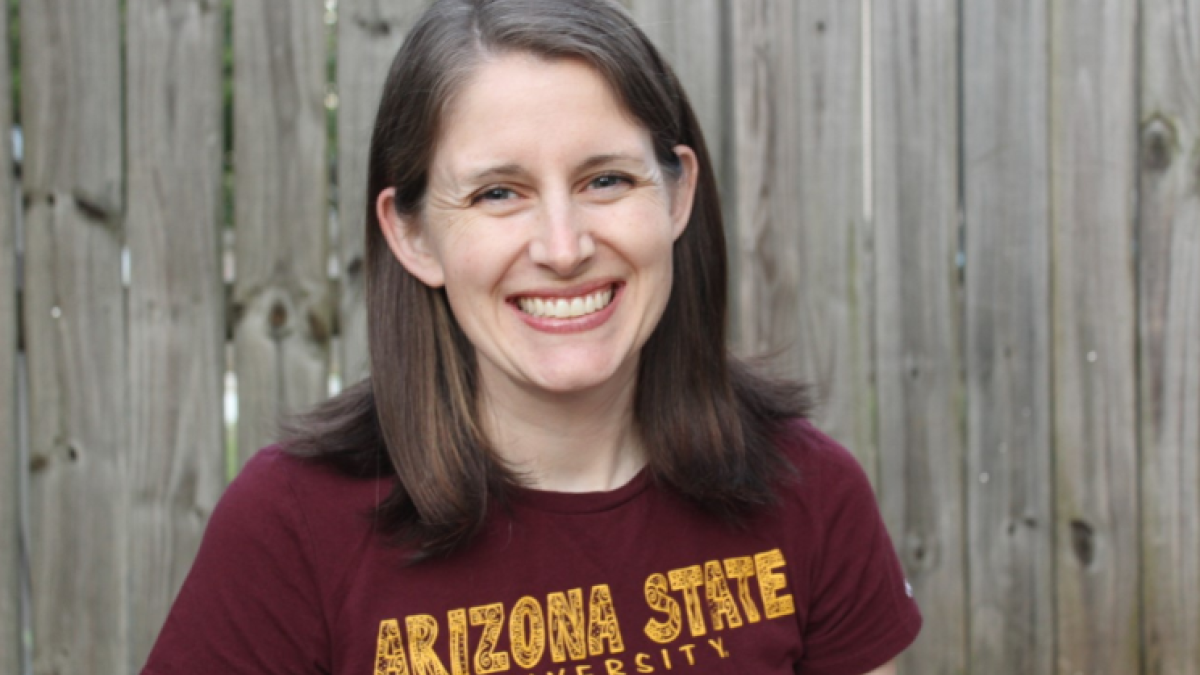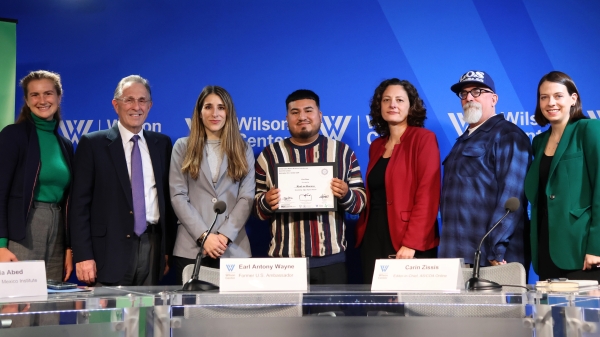Online graduate student hopes to help future students by teaching online

Lauryl Jensen will be graduating with her master’s degree in history. Photo courtesy of Lauryl Jensen.
Editor's note: This story is part of a series of profiles of notable spring 2020 graduates.
Lauryl Jensen has always loved teaching. After receiving her undergraduate degree in secondary education from Brigham Young University-Idaho, she taught junior high for a few years before starting her family.
“It is the most rewarding thing for me to participate in moments that broaden someone else’s understanding and in turn broaden my own,” said Jensen.
Ten years and four children later, Jensen decided to take the next step in achieving her dream of teaching online courses for her alma mater. She wants to work for BYU Pathway and help them in their efforts to make higher education more accessible to people.
“A master’s degree was an essential step in that process,” said Jensen. “Specifically earning my master’s degree online has given me valuable insight into the experience that my own future students will have.”
She will be graduating with her master’s degree in history from the School of Historical, Philosophical and Religious Studies. The school caught up with her to ask her about her time at Arizona State University.
Question: What was your “aha” moment, when you realized you wanted to study the field you majored in?
Answer: I toyed with the idea of several different master’s degrees before settling on history. I was looking into education first, but in counseling with several mentors and exploring the options at ASU, history felt right. I started looking into class possibilities and got excited to learn rather than just get a degree.
Q: What’s something you learned while at ASU — in the classroom or otherwise — that surprised you or changed your perspective?
A: While training to be a historian, I had my perspective enhanced in a wide variety of ways. The one that has stuck with me the most has been the conversation that surrounds the idea of bias. We all have our own perspective that we truly can not get outside of. This is not necessarily bad, but it is definitely something that we need to acknowledge and address as we form opinions about the world around us. It also makes a huge difference when we try to see the perspective of others.
Q: Why did you choose ASU?
A: While I was researching online programs, ASU kept coming up as No. 1 for innovation and accessibility. The online program had a fabulous reputation and it has not disappointed.
Q: Which professor taught you the most important lesson while at ASU?
A: Dr. Matthew Casey has been an invaluable mentor for me. Not only did he help to guide me while taking classes at ASU, his example as a professor who truly wants his students to succeed is one that I will take with me into my own teaching career.
Q: What’s the best piece of advice you’d give to those still in school?
A: Aside from the common "You can do it!" — which you can — I would also add to make a schedule for schoolwork. Plan it out and commit it to paper. That will help in taking charge of your studies and not feeling flustered cramming things in at the last minute.
Q: What are your plans after graduation?
A: I am applying for online teaching positions with BYU-Idaho. However, I am open to other opportunities to teach online. I will also continue to support my children and husband in their numerous adventures. I am so grateful for the opportunities we have.
Q: If someone gave you $40 million to solve one problem on our planet, what would you tackle?
A: I believe that the answer to many of the problems that face our world lies in the opportunity for further education. I would use that money to fund creative opportunities for making all forms of higher education available to a broader population. Degrees, certificates, training, education needs to be more accessible to allow success for more people.
More Arts, humanities and education

Kaleidoscope short film contest inspires powerful binational filmmaking in its second year
“We come to this country not to steal anybody’s jobs but to take advantage of the opportunities that the rest ignore. We’ve been…

School of Social Transformation faculty member assumes new title with NSF
School of Social Transformation faculty member and Founding Executive Director of the Center for Gender Equity in Science…

ASU's Neal Lester reflects on life, death of poet Nikki Giovanni
When Neal Lester heard on Monday that poet and activist Nikki Giovanni had died, the news hit hard.Lester, the founding director…